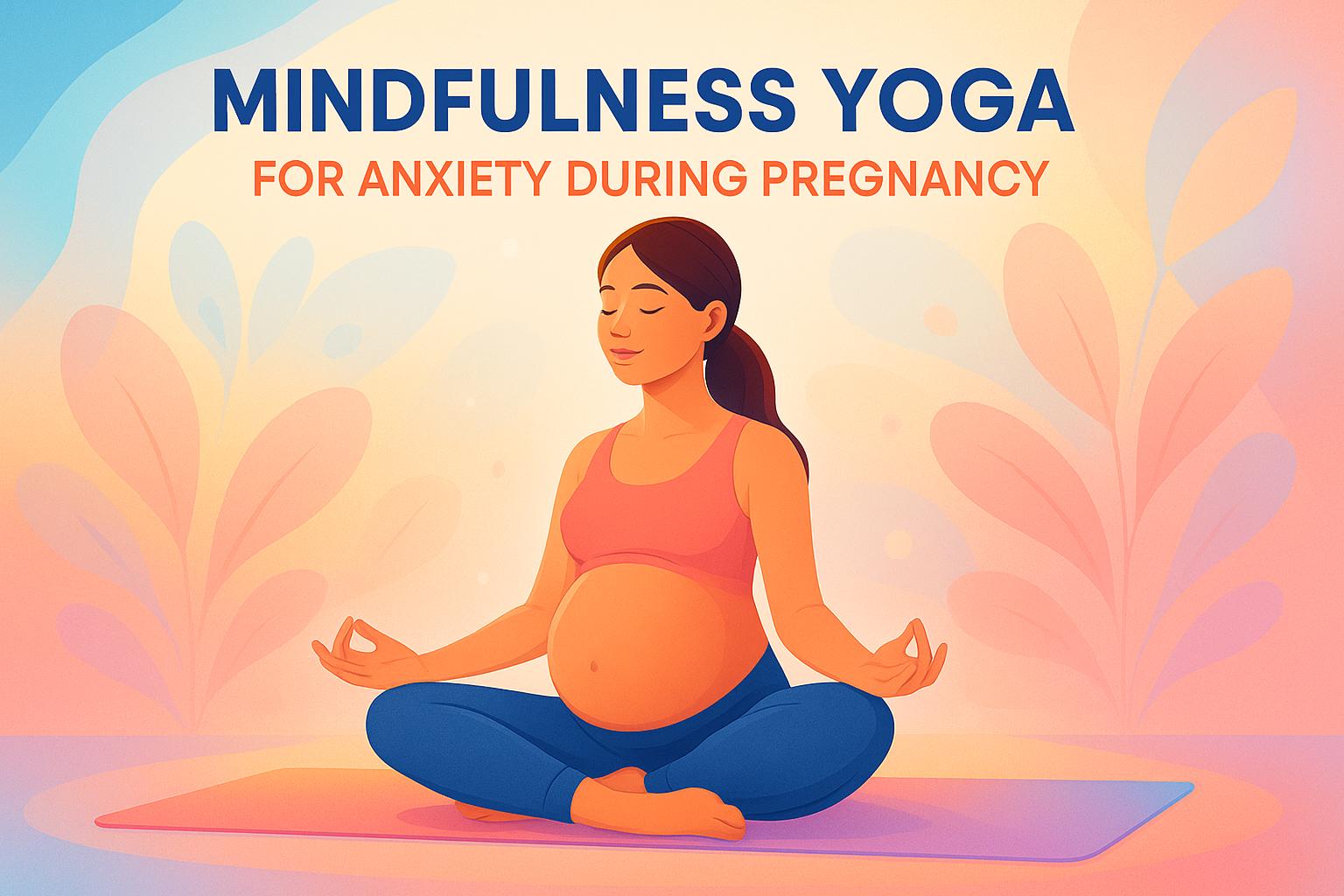Women's peer support groups offer powerful benefits for mental health:
- Safe space to open up
- Connect over shared experiences
- Learn stress-busting techniques
- Spark self-discovery
- Boost confidence
- Complement one-on-one therapy
These groups provide judgment-free zones where women can talk freely, feel understood, and grow together. They're especially helpful for issues like depression, anxiety, and eating disorders, which affect women more often.
| Benefit | Impact |
|---|---|
| Social support | Lowers risk of mental health issues |
| Self-esteem | Improves confidence |
| Depression symptoms | Decrease with peer support |
Want to try? Find a local or online group, show up regularly, share your story, and practice new coping skills. It's that simple - and it could change your life.
Related video from YouTube
1. Safe Place to Talk
Need to vent but don't know where? Women's peer support groups are your go-to.
These groups are like a trust bubble. No side-eyes, no criticism. Just sharing, listening, and supporting.
Here's what you get:
- A judgment-free zone
- People who get it
- What's said here, stays here
Kristen Moyer, LCPC, nails it:
"Non judgmentalness is a skill. And all skills take a lot of time to practice!"
This skill? It's the group's secret sauce.
How does it work? Easy:
- Show up
- Share (if you want)
- Listen
- Support
That's it. No fancy stuff. Just women backing women.
But here's the real deal: it's not just talk. It's about healing, growing, and finding your voice. It's where "I'm struggling" meets "We've got you."
2. Sharing Similar Life Events
Ever felt alone in your struggles? Women's peer support groups change that fast.
These groups connect women facing similar challenges. From pregnancy to menopause, you'll find others who understand.
Sharing in these groups:
- Breaks isolation
- Builds understanding
- Creates strong bonds
Dr. Rebecca Schwartz-Mette from the University of Maine says:
"High quality friendships provide understanding, support, and validation of your self-worth."
That's exactly what these groups offer.
Allison Gordon, Head of Communications for Citibank in New York, shares:
"There is nothing as heart-warming and confidence-boosting as a women's support group. Each woman arrived with a special gift to offer, but imposter syndrome was looming. The female support group muffled the doubts – these women provided the tender yet firm nudge to take the first step toward confidence."
The numbers back it up:
- 26% of women struggled with mental illness in 2020, vs 16% of men
- 25% of women reported severe anxiety during the pandemic, compared to 18% of men
In these groups, you're not a statistic. You're part of a community that gets you.
Even Olympic champions need support. In 2014, Michael Phelps opened up about his anxiety and depression. Now, he works with Talkspace to help others access mental health resources.
Bottom line? Sharing isn't just talking. It's healing, growing, and lifting each other up.
3. Learning New Ways to Handle Stress
Stress is unavoidable, but how we manage it can be a game-changer. Women's peer support groups are goldmines for stress-busting techniques.
These groups are like swap meets for coping strategies. You might pick up:
- Breathing exercises that calm you in seconds
- Mindfulness tricks to keep you present
- Time management hacks to avoid overcommitment
- Self-care routines that boost your resilience
But it's not just about collecting tips. It's about putting them to work with backup.
"High quality friendships provide understanding, support, and validation of your self-worth", says Dr. Rebecca Schwartz-Mette from the University of Maine.
This support makes trying new stress-busters less daunting. You're not going it alone.
Check out these real-world stress zappers:
| Technique | Benefit | Proof It Works |
|---|---|---|
| Mindful Meditation | Cuts anxiety | 2014 study: even short programs lower stress |
| Muscle Relaxation | Eases tension | Reduces anxiety, boosts mental health |
| Exercise | Mood booster | Brisk movement fights stress head-on |
| Social Time | Emotional relief | Face-to-face chats trigger feel-good hormones |
sbb-itb-3d00657
4. Better Understanding of Oneself
Ever feel stuck in your own head? Women's peer support groups can be your way out.
These groups aren't just venting sessions. They're mirrors, showing you parts of yourself you might miss.
Here's the deal:
- You're not alone in your struggles. Others' stories can light up your own.
- Sometimes you need an outside view to spot your behavior patterns.
- No judgment zone. Say things you wouldn't elsewhere.
- Learn new ways to communicate and handle emotions.
The Washington Coalition of Sexual Assault Programs (WCSAP) uses activities to boost self-awareness in these groups. They help women dig into their feelings and actions.
"Group therapy lets you practice skills and be vulnerable safely. This builds confidence to use those skills in less predictable spaces outside." - Katherine Bracken, Ph.D.
This confidence boost matters. Understanding yourself better equips you for life's challenges.
| Benefit | How It Helps |
|---|---|
| Self-awareness | Spot thought and behavior patterns |
| Communication | Express feelings clearly |
| Emotional regulation | Manage strong emotions |
| Decision-making | Clarify personal values and goals |
5. Feeling More Sure of Yourself
Women's peer support groups can be a game-changer for your confidence. Here's why:
You're surrounded by women who understand your struggles. Your experiences are validated, and you learn from others' wins.
One woman put it this way: "I used to think I was alone. Now, I see my worth through my group's eyes."
But it's not just about feeling good. It's about real-world impact.
A UK study found that peer support helps women stay on track in work and school.
Here's how peer support builds confidence:
| Confidence Booster | How It Helps |
|---|---|
| Shared experiences | You're not alone |
| Positive feedback | Others see your strengths |
| Problem-solving | New ways to tackle issues |
| Self-expression | Practice speaking up |
Dr. Patrick Corrigan, a stigma researcher, says:
"Peer support can reduce self-stigma, affecting how we see ourselves in relation to mental illness."
In short, you start seeing yourself in a more positive light.
Want to boost your confidence? Try these:
- Join a women's peer support group
- Share your story (when ready)
- Celebrate others' wins
- Practice self-compassion
6. Works Well with One-on-One Therapy
Peer support groups for women can supercharge your individual therapy. Here's the deal:
They give you extra support between sessions. You get different perspectives from group members. And you can practice new skills in a safe space.
Plus, your peers can keep you motivated to stick with your treatment plan.
Check this out:
A study of veterans found that 89% said peer support made them more likely to use clinical services. And 94% said it helped reduce stigma.
"Peer support can reduce self-stigma, affecting how we see ourselves in relation to mental illness", says Dr. Patrick Corrigan, a stigma researcher.
This mindset shift? It can help you squeeze more value out of your therapy sessions.
Here's a quick comparison:
| Aspect | Individual Therapy | Peer Support Group | Combined Benefit |
|---|---|---|---|
| Focus | Personal issues | Shared experiences | Broader healing |
| Skills | Learn new tools | Practice with peers | Better skill use |
| Support | From therapist | From group members | Constant backing |
Want to make the most of both? Try this:
- Share group insights with your therapist
- Use therapy goals as talking points in your group
- Ask your group for feedback on your progress
Bottom line: Peer support and therapy are a powerful combo. Use both to supercharge your healing journey.
Wrap-up
Women's peer support groups pack a punch for mental health. Here's the rundown:
- They're a safe space to open up
- You connect over shared experiences
- You pick up new stress-busting tricks
- They spark self-discovery
- Your confidence gets a boost
- They work well with one-on-one therapy
But don't just take our word for it. Check out what the research says:
| Benefit | Impact |
|---|---|
| Social support | Lowers risk of perinatal mental health issues |
| Self-esteem | Boosts parenting confidence |
| Depression symptoms | Drop with peer support |
A Canadian study found phone-based peer support from trained volunteers helped prevent postnatal depression in high-risk women. The support group had way lower scores on the Edinburgh Postnatal Depression Scale compared to the control group.
"These groups create a space where women can talk freely, feel less alone, and learn valuable coping skills from others just like them." - Pansy Ayala, Licensed Therapist at Catalyss Counseling
Want to give it a shot? Here's what to do:
- Find local or online women's support groups
- Show up regularly to build connections
- Share your story and listen to others
- Practice new coping skills in the group
It's that simple. Give it a try and see how it can change your life.
FAQs
What's a women's support group for?
A women's support group is a safe space for 5-10 women to meet and talk. They share experiences, offer encouragement, and understand each other better. The main goals?
- Less isolation
- Sharing ways to cope
- Building community
- Giving and getting support
Do support groups actually help?
You bet. Research shows they can:
| Benefit | Impact |
|---|---|
| Cut loneliness | Up to 50% less isolation |
| Lower stress | 25-30% stress reduction |
| Boost mood | Fewer depression and anxiety symptoms |
Dr. Sarah Thompson, a clinical psychologist, says: "Support groups let women be vulnerable, learn from others, and feel more confident in handling tough stuff."
What good comes from peer support groups?
Peer support groups offer a bunch of benefits:
- Emotional backup
- Real-world advice
- Better self-understanding
- Improved coping tricks
- Less mental health stigma
The National Alliance on Mental Illness found that 95% of people in these groups got better at dealing with daily problems.



